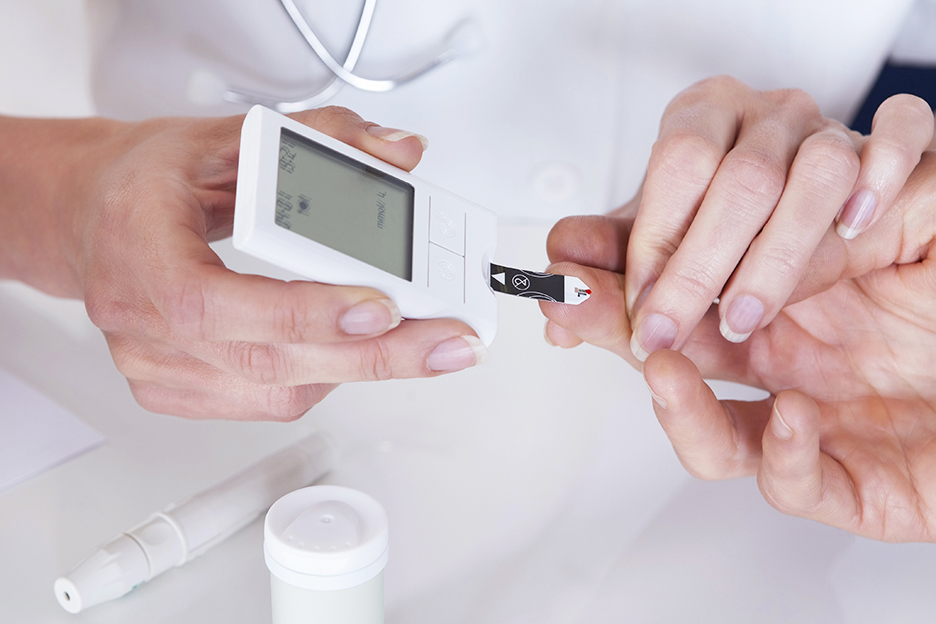Since your doctor told you that you have diabetes, you have had to change your habits somewhat. Among other things, you have probably included the use of a small device called blood glucose meter. Do you understand the importance of regularly monitoring your blood sugar using this device?
DIABETES BASICS
Diabetes is a chronic disease affecting the way the body processes glucose (sugar) in the blood. In type 1 diabetes, the pancreas can no longer produce insulin, a hormone through which glucose can be used in body cells to release energy. Type 2 diabetes is a two-pronged condition: on the one hand, the pancreas does not produce the necessary amount of insulin; on the other hand, the latter can no longer play its role well due to an insensitivity of the cells of the body to its action (insulin resistance).
People with diabetes, regardless of type, will require lifelong medical treatment. Type 2 diabetes can, in some cases, be well controlled initially by healthy eating, weight loss and increased physical activity. However, many people with type 2 diabetes will eventually need to take medication, most often by mouth. Sometimes injection medications, such as insulin, will be used.
For its part, the treatment of type 1 diabetes is essentially based on daily insulin injections. Oral medications are ineffective against this type of diabetes.
WHY IS IT IMPORTANT TO CONTROL GLYCEMIA?
Many people living with diabetes do not experience any particular symptoms unless they are hyperglycemic (too high blood sugar) or hypoglycemic (too low blood sugar). However, hyperglycemia leads to significant damage to certain organs, which is at the root of the complications of diabetes. Among these are:
- a cardiac or vascular event such as a myocardial infarction (heart attack) or stroke;
- kidney problems, sometimes leading to dialysis;
- eye problems, which can lead to loss of vision (blindness);
- sexual difficulties, such as erectile dysfunction;
- circulation and wound healing disorders, which can lead to amputation.
To avoid the complications of diabetes, excellent glycemic control must be achieved to minimize exposure to hyperglycemia. This helps to delay the onset of diabetes complications.
Daily blood glucose monitoring, called blood glucose self-monitoring, is an essential part of managing your diabetes, along with lifestyle changes and medication. It lets you know the impact of the steps you take to better control your diabetes, including:
- changes to your diet;
- weight loss;
- physical activity;
- medication.
When your blood glucose meter indicates that it is too high, you can immediately take the necessary steps to normalize it. This may involve changing your diet (for example, avoiding certain foods) or stepping up your medication. When you notice that your blood sugar is too high, talk to your pharmacist or healthcare professional responsible for monitoring your diabetes immediately. Together, you can agree on a strategy to rectify the situation.
SELF-MONITORING OF GLYCEMIA: A MATTER OF COMMITMENT
When you learn that you will have to live with diabetes, the motivation to take charge of your health is often maximum. All means are good to avoid hyperglycemia. In the beginning, we tend to practice self-monitoring of blood glucose and do the tests diligently, as the doctor has recommended. Then time passes, and we lose sight of the importance of this measure, which is so crucial.
Self-monitoring of blood glucose should be a commitment to yourself first. Without a shadow of a doubt, your doctor and pharmacist will be glad you're thorough, but only you, in the end, will reap the benefits.
Here are some tips to help you keep your commitment:
- Choose a blood glucose meter that appeals to you, meets your lifestyle needs, and is easy for you to use. Since you will have to do your blood sugar tests several times a day or a week, as much as possible.
- Be sure to ask your pharmacist or other healthcare professional to give you a complete demonstration on how to use your blood glucose meter. This will allow you to fully understand its instructions for use and to know its different functions.
- Carefully read the player manufacturer's instructions or visit their website. You will find additional information that will be useful to you.
- Attend training at a diabetes education center. Along with a wealth of information on blood glucose monitoring, you will be educated on all aspects of effective diabetes management. Ask your pharmacist to find the center closest to you.
When you live with diabetes on a daily basis, it is normal and desirable to ask yourself many questions. Your pharmacist knows several aspects of diabetes, and his knowledge goes well beyond medication. Consult him often to take advantage of his expertise, particularly with regard to self-monitoring of blood sugar.
When you understand the importance of blood glucose monitoring and the favorable effect it can have in terms of preventing complications, it is easier to be diligent. Diabetes is a treatable disease when taken seriously. Make your diabetes have a happy ending; only you have the power!
Copyrights: brunet.ca


